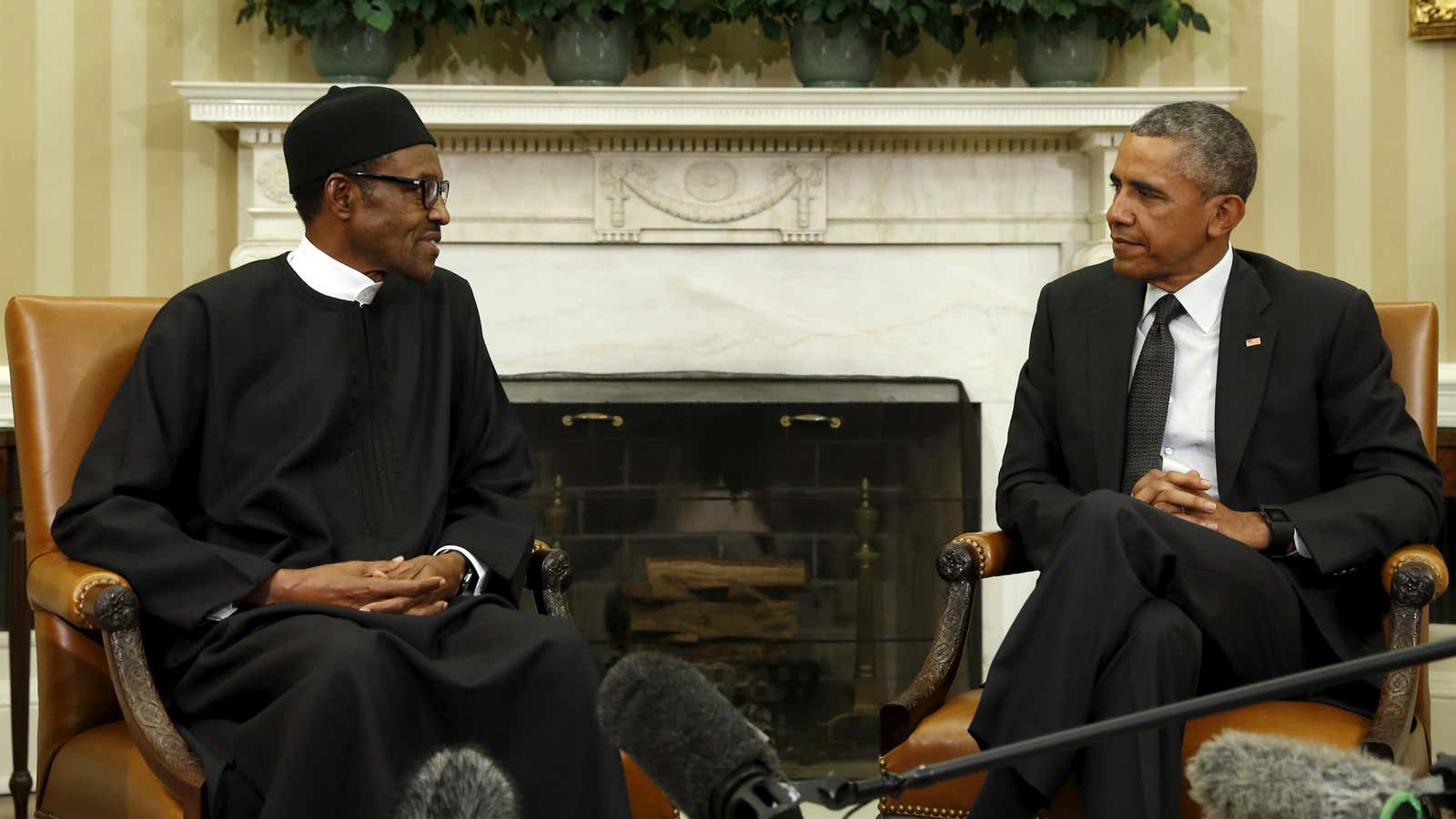Muhammadu Buhari wants Nigerians to be patient. Since he took over as president at the end of May, there has been louder and louder grumbling at the length of time it is taking him to appoint a cabinet. But in a Washington Post op-ed written ahead of his meeting today with US president Barack Obama in Washington DC, Buhari said he wouldn’t confirm his appointments until September.
Some Nigerians have nicknamed him “Baba Go Slow,” after Lagos’s traffic jams (“go-slows”). The formation of a presidential cabinet in Nigeria is usually a carefully stage-managed affair, with political appointments made to seemingly foster regional inclusion among the many different ethnic groups. But Buhari’s methodical manner is likely an attempt to avoid appointing corrupt officials. Much of the graft that occurs in Nigeria takes place under the auspices of government ministers.
In his op-ed Buhari argued that even Obama had taken his time to fill his cabinet (though he conveniently ignored the fact that the US president has a lengthy Congressional confirmation process to contend with):
It is worth noting that Obama himself did not have his full Cabinet in place for several months after first taking office; the United States did not cease to function in the interim. In Nigeria’s case, it would neither be prudent nor serve the interests of sound government to have made these appointments immediately on my elevation to the presidency; instead, Nigeria must first put new rules of conduct and good governance in place.
Buhari has repeatedly said he would work tirelessly to end corruption in Nigeria, but there had been little clear evidence of this until last week, when he fired the heads of all the government parastatals. There are now regular—but unconfirmed—rumors in Abuja of former government officials attempting to return funds in exchange for leniency.
Boko Haram’s terror rampage in Nigeria and neighboring countries will be top of the agenda in Buhari and Obama’s discussions. The Nigerian president, who campaigned strongly on his former military background, said Nigeria was beginning to win the war despite the numerous killings of civilians in recent weeks:
Already we are beginning to see a degrading of Boko Haram’s capabilities as a fighting force. In recent weeks, it appears to have shifted away from confronting the military directly to an increase in attacks on civilian areas, as we saw only last week when an elderly woman and 10-year-old girl blew themselves up at a Muslim prayer gathering in northeastern Nigeria. We should not be confused by this change, hateful as it is: It does not mean that Boko Haram is succeeding in its aims — it shows that it is losing.
It’s certainly true, as Quartz reported recently, that Boko Haram’s tactics seem to have shifted in the first month of Buhari’s rule, as compared with the last month under his predecessor, Goodluck Jonathan. The number of attacks hasn’t fallen, but the militant group has been focusing more on urban areas:
Whether that means Boko Haram is losing, however, it’s a little early to say.
